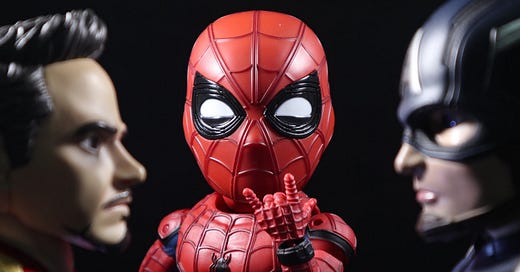“When the will defies fear, when duty throws the gauntlet down to fate, when honor scorns to compromise with death — that is heroism.” — Robert Green Ingersoll
We need to change the discourse on heroism. The media has a significant impact on our children’s values. Often, what they see portrayed as heroic isn’t that at all.
When we glorify violence or drug dealers, for example, we send our children the wrong message about what it means to be a hero. We need to celebrate real heroism instead — things like courage, strength, and compassion.
A famous saying is that you should never meet your heroes because you will always be disappointed. And in many ways, this is correct. It’s true because we are all human and have faults.
There is no such thing as an ideal person. This happens when we dehumanize our heroes. It occurred with my parents, which was very difficult for me. There is a time in life when you discover that your parents aren’t perfect.
And this is good because it means you can relate to them better and understand them more as human beings. But there are also times when you’re a child and don’t know how to handle this realization.
You may feel like your entire world has been shattered because the people you thought were infallible are not so perfect after all. But this is a natural process of growing up and learning to accept things as they are rather than how we would prefer them to be.
But it’s one thing to learn your heroes aren’t perfect and another to portray something that isn’t heroic as such.
When the bad is made to appear desirable.
This is what’s called an inversion of value. The word “value” comes from the Latin term valere, which means to be strong or healthy. So inversion of value means turning something unhealthy seems desirable.
This is dangerous because it can distort our view of the world.
It can make us think that things that are bad for us are good and those harmful things are, in fact, beneficial.
It can also lead to increased violence and chaos in society as people try to emulate the “heroes” they see on TV or in the movies.
Some TV shows portray criminals as cool instead of dangerous or glamorize violence to solve problems.
And while this might make for good TV, it’s not suitable for our children. It sends the wrong message about what is heroic and can have a lasting impact on their values.
Children learn by imitating.
We are wired for survival. And as humans, a good way to survive is to imitate other human beings.
Mirror neurons were discovered about 20 years ago. It has aided us in gaining a better understanding of human behavior.
Mirror neurons are what allow us to imitate others. You can see this in babies who learn very early on how things work by imitating their parents or other adults around them.
These mirror neurons help our survival because we don’t have to figure out everything independently, taking time and energy. Instead, we can copy someone else’s behavior that has been successful for them (and hopefully will be good for us too). This process is called social learning theory.
The problem is it works both ways — the good and the bad behavior get reinforced through imitation. Suppose children see other people using violence to solve problems or taking drugs seems cool. In that case, they may want to do these things too because they see it as successful.
Celebrate real heroism.
It wasn’t long ago when concepts like honor, courage, and compassion were not only desirable but needed to interact in society. If you didn’t have these traits 300 years ago, there wasn’t much you could do other than be an ostracized thief.
Now it’s 2022, and we have different problems. Some of these qualities are frowned upon or considered weak. We don’t need them as much to survive in society.
But this doesn’t mean they’re no longer valuable.
I would argue that we need these qualities now more than ever. We have to redefine what they are and how they manifest themselves.
We need to celebrate real heroism. This means celebrating people who exhibit the qualities of honor, courage, and compassion in their everyday lives, whether it’s a mother who stays home with her kids or someone who helps others when they’re going through a tough time.
These things may not make for good TV or flashy headlines, but they are the real heroes of our time. And we should do everything we can to celebrate them.
Honesty, courage, and compassion are still essential to harmoniously interact with society. These traits don’t apply to interactions within our small community or even country but instead on a global scale. We need to have these traits to solve the world’s big problems.
We can start by talking to our children about the real-life heroes around us and by setting a good example ourselves. Let’s teach our children that being a drug dealer or a criminal is not cool, but instead, being kind, courageous, and honest is what makes someone a hero.
This will help shift the focus from negative role models to positive ones. Let’s work together to create a new discourse on heroism that will inspire our children to be their best selves!




